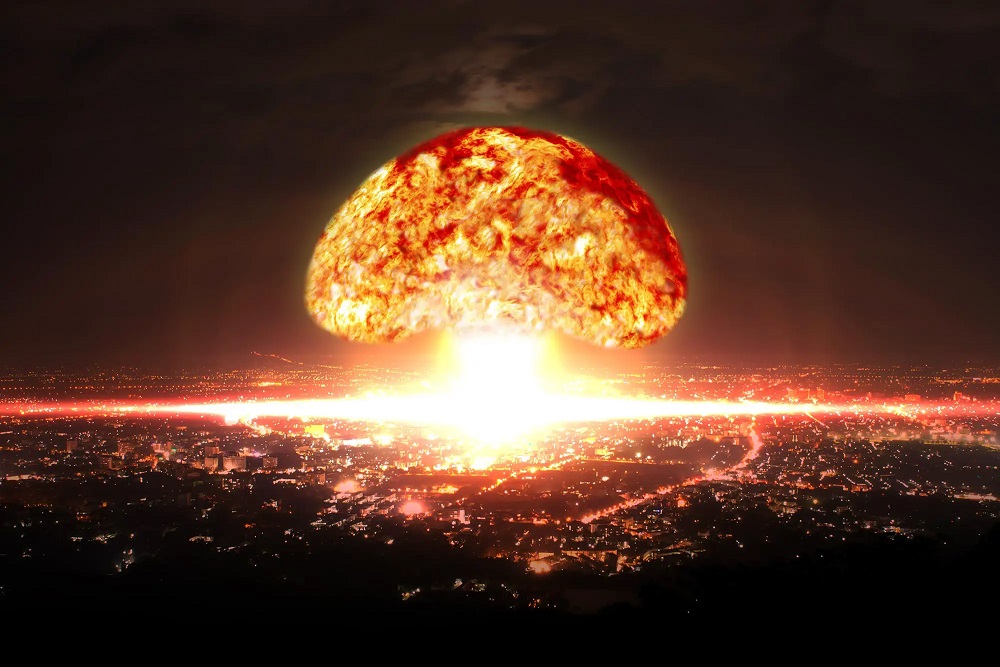Ukraine War is testing the veracity of many existing treaties associated with the usage of the nuclear arsenal.
The ongoing conflict in Ukraine has had profound consequences on international relations, particularly in the realm of nuclear diplomacy. Since the conflict began in 2014, following Russia’s annexation of Crimea and the outbreak of fighting in Eastern Ukraine, the security environment in Europe has shifted dramatically. As a result, the principles of disarmament, non-proliferation, and nuclear deterrence have come under increased scrutiny. The multifaceted impacts of the war in Ukraine on nuclear diplomacy, including the implications for the Non-Proliferation Treaty (NPT), the role of nuclear weapons in regional and global security, and the prospect of future arms control agreements are dire in the present scenario. As does the NPT and Budapest Memorandum of 1970.
The Non-Proliferation Treaty and Budapest Memorandum
The NPT, which entered into force in 1970, is the cornerstone of the global non-proliferation regime. It was built on three pillars: non-proliferation, disarmament, and the peaceful use of nuclear energy. However, the war in Ukraine has cast doubt on the credibility of the NPT’s security assurances, particularly in light of the Budapest Memorandum.1
The Budapest Memorandum of 1994 was a historic agreement signed by Ukraine, Russia, the United States, and the United Kingdom. The agreement was a pivotal moment in global disarmament efforts, as it marked the voluntary relinquishment of Ukraine’s nuclear arsenal, which was the third-largest in the world at the time. In exchange for giving up its nuclear weapons, Ukraine received security assurances from the other signatories. 2
This agreement was a significant milestone in the pursuit of a more stable security environment. It demonstrated that a nuclear-armed state could willingly disarm and contribute to global peace efforts. The Budapest Memorandum serves as a reminder of the importance of international cooperation and diplomacy in resolving conflicts and promoting disarmament.
However, Russia’s annexation of Crimea and its ongoing support for the separatists in Eastern Ukraine have raised questions about the value of the security assurances provided by the Budapest Memorandum. As a result, some non-nuclear weapon states may now view the NPT’s disarmament and security assurances as less reliable, potentially undermining the treaty’s effectiveness in curbing the spread of nuclear weapons.
Nuclear Weapons in Regional and Global Security
The Ukraine crisis has also prompted a re-evaluation of the role of nuclear weapons in regional and global security. In the face of an increasingly assertive Russia, NATO has sought to reassure its Eastern European members through enhanced military presence and exercises. Some experts argue that Moscow’s actions in Ukraine have reinforced the importance of nuclear deterrence for NATO, as the alliance seeks to preserve the credibility of its security guarantees. As Finland also joins NATO bringing NATO to the borders of Russia.
At the same time, Russia’s actions have led to growing concerns about the potential for nuclear escalation. Russia has engaged in provocative nuclear signalling, including deploying nuclear-capable missile systems to Kaliningrad and conducting large-scale nuclear exercises. Additionally, Moscow’s military doctrine emphasizes the role of nuclear weapons in deterring and responding to conventional threats. This has raised the risk of a nuclear incident, either through miscalculation or misunderstanding, and has increased the importance of nuclear risk reduction measures.
It is widely acknowledged, even by Moscow, that the use of nuclear weapons is a dangerous game with irreversible consequences. The potential for neighbouring states to suffer the same fate as Hiroshima is a sobering reminder of the devastating power of these weapons. Despite Russia’s aggressive stance, it is imperative that we prioritize nuclear deterrence and diplomacy in the global arena. These issues are of the utmost importance and require a delicate approach to ensure the safety and security of all nations.
Future Arms Control Agreements
The ongoing conflict in Ukraine has had a detrimental impact on the potential for future arms control agreements. The trust and cooperation required for such agreements have been severely damaged by the conflict, making it difficult to establish a foundation for future negotiations. The Intermediate-Range Nuclear Forces (INF) Treaty, signed by the United States and the Soviet Union in 1987 to eliminate an entire class of nuclear and conventional ground-launched ballistic and cruise missiles, has broken down due to the deteriorating security environment in Europe. The United States formally withdrew from the INF Treaty on August 2, 2019, under the Trump administration.3
Furthermore, the New Strategic Arms Reduction Treaty (New START) between the United States and Russia, which limits the number of deployed strategic nuclear weapons, expired back in 2021. While both parties have expressed interest in extending the treaty, the tensions surrounding the Ukraine crisis may complicate negotiations. The erosion of trust and cooperation between the United States, Russia, and European nations also makes the prospect of new arms control agreements seem distant.4
It is crucial to address the issues that have arisen from the conflict in Ukraine and work towards rebuilding trust and cooperation between nations. Failure to do so could result in the loss of important arms control agreements and the potential for increased tensions and conflict. It is imperative that all parties involved prioritize diplomacy and work towards a peaceful resolution to the ongoing crisis.
Takeaway
The war in Ukraine has had a significant impact on nuclear diplomacy, raising questions about the credibility of security assurances under the NPT, the role of nuclear weapons in regional and global security, and the prospects for future arms control agreements. As the conflict continues to evolve, it is crucial for policymakers and experts to consider the implications of these developments for the global non-proliferation regime and nuclear diplomacy more broadly. Amidst growing concerns about the potential for nuclear escalation, maintaining open lines of communication and pursuing risk reduction measures are essential to preserving international peace and security.
Title image courtesy: Scitechdaily
Disclaimer: The views and opinions expressed by the author do not necessarily reflect the views of the Government of India and Defence Research and Studies
Citations
- UNTC. “UNTC,” October 2, 2014. https://treaties.un.org/Pages/showDetails.aspx?objid=0800000280401fbb.
- Treaty on the Non-Proliferation of Nuclear Weapons (NPT) | IAEA. “Treaty on the Non-Proliferation of Nuclear Weapons (NPT) | IAEA,” March 22, 2013. https://www.iaea.org/topics/non-proliferation-treaty.
- The Intermediate-Range Nuclear Forces (INF) Treaty at a Glance | Arms Control Association. “The Intermediate-Range Nuclear Forces (INF) Treaty at a Glance | Arms Control Association,” June 2, 2022. https://www.armscontrol.org/factsheets/INFtreaty.
- United States Department of State. “New START Treaty – United States Department of State,” n.d. https://www.state.gov/new-start/.





